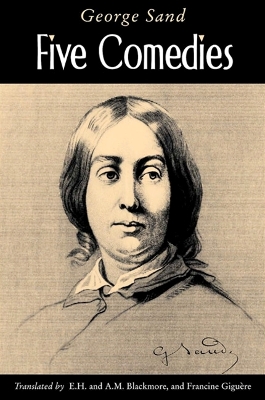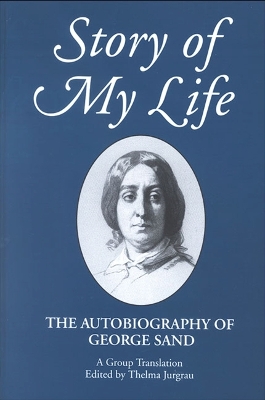SUNY series, Women Writers in Translation
4 total works
Two full-length and three one-act plays, translated here for the first time into English.
Best known as a novelist, George Sand (1804–1876) was also arguably the most successful woman dramatist in history. More than twenty of her plays were staged in major Paris theaters to widespread popular and critical acclaim. Translated here for the first time into English are her two most famous full-length comedies, The Marquis de Villemer and Françoise, as well as her three major one-act plays, The Paving Stone, The Japanese Lily, and A Good Deed Is Never Wasted. Noted for their lively characterization, sparkling dialogue, and deft constructions, her plays reflect the passion and generosity of her own character, as well as a quick-witted sense of humor.
The translations are preceded by an introduction outlining Sand's theatrical career, the main themes and characteristics of her plays, and critical appraisals from her own generation to the present day. The translations are followed by notes and a bibliography.
A new translation of Sand's most popular novella, known for its brevity, liveliness, and exemplary storytelling, together with two of Sand's most admired short stories.
Newly translated into English, "The Devil's Pool" is the most popular of George Sand's novellas and her best-selling work in France today. Illustrating Sand's brevity, liveliness, and exemplary storytelling, the tale deals with many of her characteristic themes-the relations between the sexes, the plight of the underprivileged, and the role of fantasy in human life-making it an ideal introduction to her work. Also included are translations of two of Sand's most admired short stories, "Lavinia" and "The Unknown God," as well as various relevant essays and documents.
The first English translation of one of George Sand's major novels.
An astonishingly modern novel, George Sand's Valvèdre questions traditional Romantic representations of women and exposes the disastrous consequences such notions of femininity have for both male and female characters at a time when divorce was illegal. This first English translation by Françoise Massardier-Kenney shows Sand's control of style and her understanding of the major tensions of early modern France: the role of women in society, the nature of motherhood, the relations between science and art, and the nature of prejudice.



